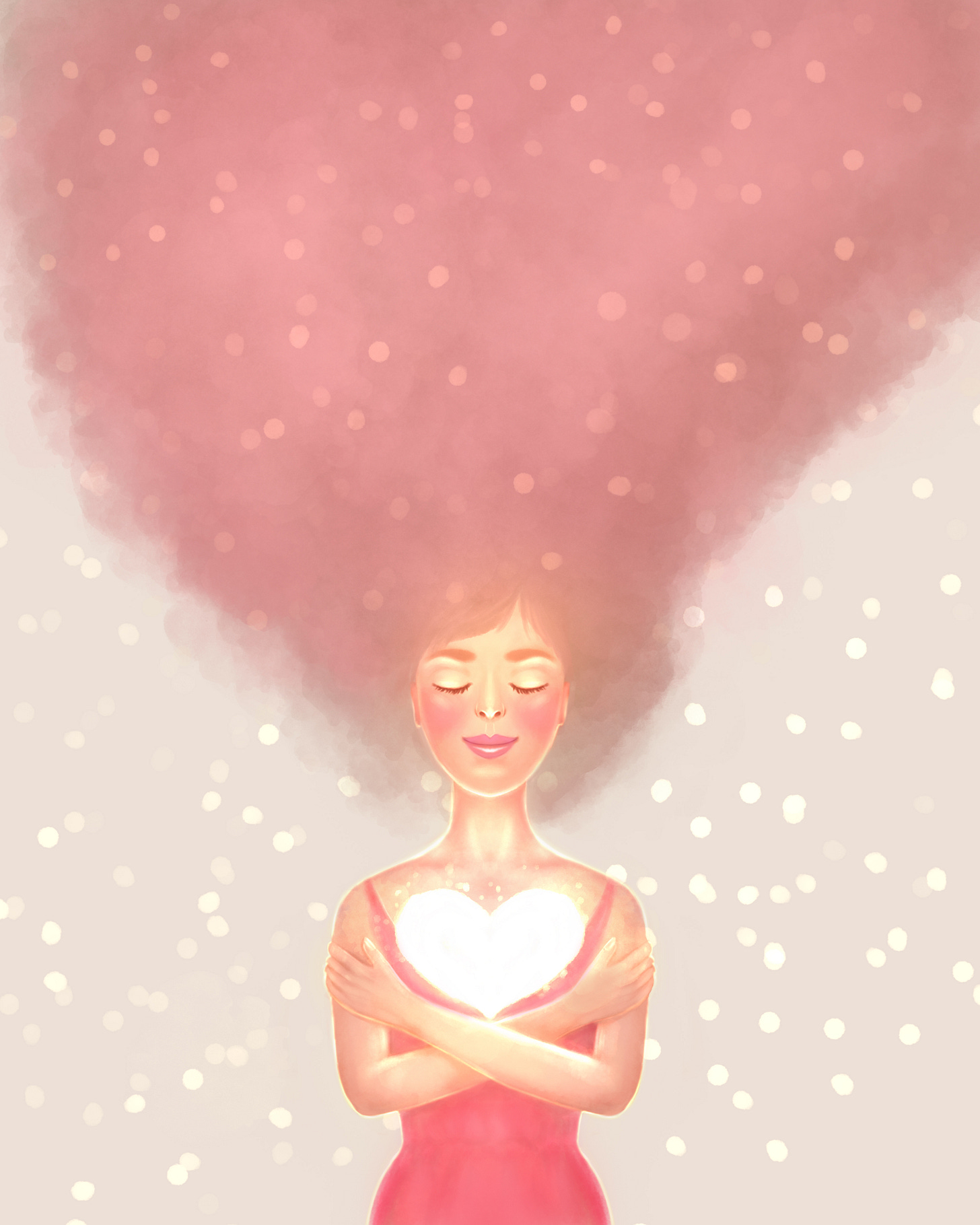This week, an experience in the chiropractor's office taught me something profound about our bodies and the importance of self-compassion. What started as a routine adjustment ended up being anything but. I went to my appointment as scheduled, but was struggling with a lingering headache. In working with my body, the chiropractor suggested a jaw adjustment…which I had never had before. The physical pain from the adjustment was intense, but what followed was unexpected: a flood of tears, an emotional release so powerful it felt as though my body was speaking directly to me. (Apparently this is somewhat common among women patients as we carry a great deal of stress and pain in our jaw.)
In the moment of the release and the ones that followed, I realized something important. We often talk about offering others compassion because we never know what they might be going through. But what about ourselves? Sometimes, we don’t even know what we ourselves are dealing with. Our bodies carry stress, grief, and emotional pain in ways we might not even be aware of, until suddenly, it all comes to the surface. That’s exactly what happened to me.
I’ve seen this often with my clients. They often come to me with emotional or professional struggles, thinking they’ve “handled it,” only to discover their bodies are still holding onto the weight of those experiences. This week’s release reminded me that we can’t always think our way through difficulty. Our bodies often know before our minds catch up, and the release—whether it’s through tears, tension, or fatigue—can be a necessary part of our healing.
Here’s what I’m learning from this and what I want to share with others:
Listen to Your Body’s Signals
Our bodies are constantly communicating with us, but we often ignore the signs until they become too loud to disregard. Whether it’s tension in your shoulders, tightness in your jaw, or an inability to relax, these are all signals that your body is holding onto something. Take time to check in with your physical self. When was the last time you asked your body how it’s feeling?
Embrace the Emotional Release
There’s no shame in crying, feeling exhausted, or even getting angry when these feelings arise. Emotional releases are a sign that your body is letting go of what no longer serves you. Along the way, I’ve learned that allowing these moments—rather than resisting them—helps us process and move through our emotions more effectively. It’s a lesson I’m still learning myself, but it’s a powerful one.
Self-Compassion is Not Optional
After my release, I’ve felt raw and tender. It’s tempting to try to push past it and get back to “normal,” but that’s not how healing works. The most compassionate thing we can do for ourselves in these moments is to give ourselves the time and space to feel everything without rushing to “fix” it. We often talk about self-care, but self-compassion—truly allowing yourself to feel and heal—is the foundation of that care.
You Can’t Always Be Strong
As leaders, professionals, and services providers (coaches, therapists, doctors, etc.) there’s often pressure to have it all together. But true strength lies in vulnerability, in allowing ourselves to admit when we’re struggling. Our culture may push us to be strong and push through, but sometimes the bravest thing we can do is to let ourselves be tender and open to what’s coming up.
I’m still sitting with these lessons myself, and I’ll admit, it’s not easy. But I’ve learned that in moments of emotional release, self-compassion isn’t just a choice—it’s essential. And as I work through this experience, I’m reminding myself that healing is not something to be rushed. It’s something to be felt, honored, and allowed to take its course.
For anyone else going through a similar experience, whether it’s a sudden emotional release or just a sense that you’re carrying more than you realize, my advice is this: be gentle with yourself. Listen to your body. And when it tells you it’s time to let go, trust that it knows what it’s doing.
You can find a little meditation below that could help as you walk through this season. Don’t hesitate to reach out if you need to talk.
Leah
Meditation:





